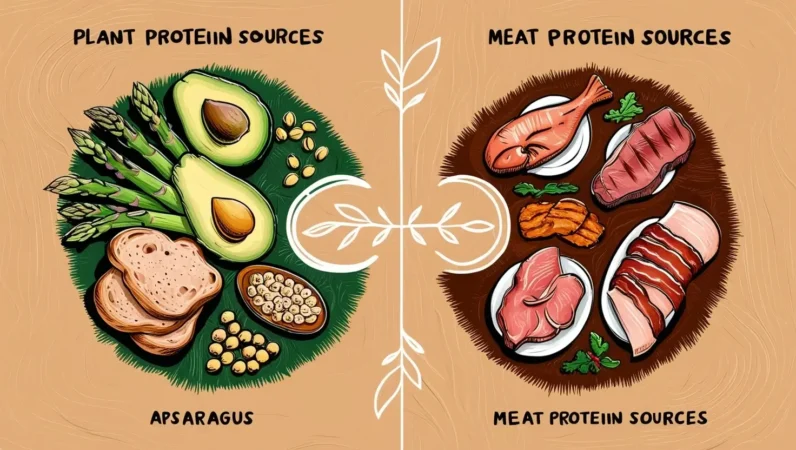
You know, when it comes to our dogs, we really have to think about what goes into their food. Like us humans, pets need a well-balanced diet to stay healthy and strong. I mean, we often have questions about what the best forms of protein are. Some people swear by whey, while others are all about keeping it strictly meat-based. I found it fascinating that even though dogs evolved from wolves, they still need a mix of nutrients to thrive. It’s not just about filling their bowls; it’s about what helps them build muscle and fuels their energy.
Now, here’s the thing: when I tried adding whey to my dog Fido’s diet, I noticed he was acting a bit more lively. But here’s where it gets tricky—like adult dogs, not all of them handle dairy well. Most Puppies have those milk-digesting enzymes, but as they grow, those enzymes drop. So, while curd can be fine for some, others may face problems digesting it. That’s why I always pay attention to how he reacts. It’s all about finding that perfect balance. I’ve learned that a little whey can be quite beneficial, helping him feel great without throwing off his tummy. By mixing it with other dog supplements, you can ensure they’re getting the right nutrients for their overall health.
CAN DOGS HAVE WHEY PROTEIN?
So, you might be wondering, can dogs have whey protein? The answer is yes, but with some important points to consider. Whey protein is a great source of nutrients and can help our furry friends. Many dogs can absorb the protein easily, making it a fantastic addition to their diet. However, it’s crucial to avoid flavored whey protein made for human consumption. Those kinds often contain poisonous ingredients like chocolate or xylitol, which can be dangerous for dogs. It’s best to stick to brands that are specifically formulated for pets. They ensure that the ingredients are safe and healthy for your dog.
It can be especially helpful for underweight dogs who need to bulk up or gain lean weight. Plus, a high protein diet can also help with reducing weight for those dogs that need to shed a few pounds. Just make sure to maintain the right balance in their meals so they can enjoy all the health benefits without any risks.
WHAT IS PROTEIN?
Protein is a vital nutrient made up of long chains of amino acids, which are essential for building and repairing tissues in both humans and dogs. These chains fold into specific shapes to perform various functions in the body, such as supporting immune systems, producing hormones, and helping muscles grow.
Here’s a table outlining the amino acids that make up proteins and their roles in the body, along with some other important components derived from protein.
| Component | Description | Examples of Amino Acids |
|---|---|---|
| Amino Acids | Building blocks of proteins, 20 standard amino acids exist. | All amino acids, including essential ones. |
| Essential Amino Acids | Amino acids that must be obtained through diet. | Leucine, Lysine, Tryptophan, Methionine, Histidine, Isoleucine, Arginine, Threonine, Phenylalanine |
| Non-Essential Amino Acids | Amino acids that the body can produce. | Alanine, Glutamic Acid, Aspartic Acid, Serine |
| Peptides | Short chains of amino acids with specific biological activities. | Various combinations of amino acids. |
| Enzymes | Proteins that catalyze biochemical reactions. | Not specific to any amino acid but made of them. |
| Hormones | Proteins that regulate various physiological processes. | Insulin, Growth Hormone (GH) |
| Antibodies | Proteins that help the immune system identify foreign objects. | Immunoglobulins (IgA, IgG, IgM) |
BENEFITS OF WHEY PROTEIN FOR DOGS
Whey protein is more than just a supplement; it can offer several benefits for our furry friends. Packed with essential amino acids, it supports various aspects of a dog’s health, from muscle repair to digestion.
Here are some of the key benefits of whey protein for dogs:
Muscle Building
Whey protein is rich in essential amino acids that aid in muscle building and repair. These amino acids help maintain and strengthen your dog’s muscles, ensuring they stay active and healthy.
Bone Health
Whey protein contains calcium and phosphorus, which are vital for strong bones. This is particularly important for small puppies and large dog breeds to prevent bone problems and diseases like hip dysplasia.
Nutrient Absorption
Whey protein is highly bioavailable, meaning the nutrients it offers are easily absorbed by your dog’s body. This supports overall health and ensures your pet gets the most from their diet.
Weight Control
For obese dogs, whey protein can help control their weight. It’s easy to digest and provides energy without adding too many calories. This makes it a great option for keeping your dog fit and healthy.
Digestive Health
With the addition of probiotics and digestive enzymes, whey protein can improve your dog’s digestive system. It helps digest food more effectively and supports a healthy balance of microbes in the gut.
Skin Health
Whey protein has antifungal and antibacterial properties. When applied topically, it can soothe skin irritations, infections, or conditions like mange. It moisturizes the skin, reducing itching and inflammation.
The amino acids found in whey protein can contribute to a shinier and healthier coat. This is essential for dogs, as a good coat indicates overall health and well-being.
Immune Support
Whey protein boosts the production of glutathione, an important antioxidant that helps eliminate tumors and may help prevent cancer. This can enhance your dog’s overall immune response and protect against various diseases.
Improved Energy Levels
Whey protein can provide a quick source of energy, making it great for active dogs or those involved in regular training. The protein helps sustain their stamina and keeps them lively throughout the day.
Anti-Aging
Older dogs often face muscle loss and joint issues. Adding whey protein can help support muscle maintenance and provide the necessary nutrients to keep them mobile and comfortable.
Fewer Allergic Reactions
For some dogs, whey protein can be easier to tolerate than other protein sources, potentially leading to fewer allergic reactions or digestive upset.
It can enhance antioxidant levels, which helps combat free radicals and inflammation. This action is important for a dog’s overall health, as it can reduce the risk of chronic diseases and support their immune system.
HEALTH RISKS OF WHEY PROTEIN FOR DOGS
While plain whey protein rarely possesses any health dis-advantage but flavored whey protein can trigger several threats to your dog’s health:
Digestive Issues
Overconsumption of whey can lead to problems like bloating, diarrhea, and vomiting. The low levels of lactose in whey can upset your dog’s digestion, causing loose stools or watery stools. If your dog experiences these symptoms, it’s best to stop giving them whey and consult a veterinarian.
Excessive Fat
Some types of whey can be high in fat, which may be harmful to dogs. Too much fat in their diet can lead to stomach upset and even serious conditions like pancreatitis, a significant disease that can endanger your dog’s life. Always offer a minimal amount of whey at first to see how their body reacts.
Toxic Sweeteners
If you choose flavored whey protein, be cautious. Many flavored options contain added sugars or artificial sweeteners, such as xylitol, which are toxic to dogs and can cause serious health issues. Always opt for plain whey without these harmful ingredients.
Allergic Reactions
Some dogs may be allergic to whey, especially if it contains casein or lactose. If your dog shows any signs of allergies, it’s essential to stop feeding them whey protein. Common symptoms include bloating, diarrhea, and other digestive issues.
Nutritional Imbalance
Whey protein is a by-product of cheese production and shouldn’t replace a dog’s regular meals. Using it as a snack or light meal might cause a lack of essential nutrients they get from their leading dog food. This can lead to a nutritional imbalance over time.
Kidney Strain
High-protein diets can put extra strain on a dog’s kidneys, particularly in older dogs or those with pre-existing kidney issues. Too much protein can exacerbate kidney problems, leading to further health complications.
Potential Contaminants
Not all whey protein products are created equal. Some may contain contaminants or impurities, especially if not sourced from reputable suppliers. This could pose health risks to dogs.
IS PROTEIN ESSENTIAL FOR DOGS?
Protein is a crucial part of a dog’s diet, but not every dog needs the same amount. Some dogs, like senior dogs, may require higher proteins to help them avoid losing muscle mass as they age. In contrast, pregnant dogs and lactating dogs also need nutrient dense foods rich in protein to support their health during pregnancy and nursing. For active or athletic dogs, a high protein diet is essential to help build and repair muscles that they use frequently while exercising.
However, it’s important to remember that each dog has different needs. Overfeeding your dog with any nutrient, including protein, can lead to health issues. It’s best to consult your veterinarian when changing your dog’s diet to ensure you are feeding them according to their specific requirements.
FREQUENCY BY WEIGHT
Here’s a weight-to-protein chart that shows how much protein dogs should consume based on their weight, with separate columns for male and female dogs:
| Weight (lbs) | Protein (g) for Male Dogs | Protein (g) for Female Dogs |
|---|---|---|
| 10 | 30 | 25 |
| 20 | 50 | 45 |
| 30 | 70 | 65 |
| 40 | 90 | 85 |
| 50 | 110 | 105 |
| 60 | 130 | 125 |
| 70 | 150 | 145 |
| 80 | 170 | 165 |
| 90 | 190 | 185 |
| 100 | 210 | 205 |
WHEY PROTEIN AND GUT HEALTH
A healthy gut relies on a diverse population of beneficial bacteria, which can be influenced by the type and quality of protein consumed. Whey protein, for instance, contains bioactive peptides and enzymes that can help support gut wellness by providing nutrients that feed good bacteria and combat bad bacteria.
Whey protein’s Lactose-rum is rich in compounds like lactoferrin (LF) and immunoglobulins (IGS), which have natural antibacterial properties. These components work together to protect the gut from harmful toxins and support the immune system. By promoting the growth of beneficial gut microbiota, whey protein can help dogs maintain their overall health and resist infections. Additionally, its ability to aid in digestion makes it a functional food that can contribute to better nutrient absorption.
DIFFERENT PROTEIN SOURCES FOR DOGS
Dogs can benefit from a variety of protein sources to meet their nutritional needs. Animal-based proteins, such as meat and fish, provide essential amino acids that support muscle health and energy. In addition, plant-based proteins like lentils and chickpeas offer a healthy alternative for dogs with sensitivities. Finally, whey protein, a by-product of cheese production, is highly digestible and can be a great supplement for active dogs, promoting muscle repair and overall health.
HERE IS A DISCUSSION:
PLANT PROTEIN
When considering protein sources for dogs, plant foods can be a valuable addition. These plant food options contain essential amino acids that dogs need, though some may be considered incomplete proteins compared to animal sources. Including vegetables like spinach in your dog’s diet can help fill an unhealthy nutritional gap when meat is not available. For those looking for a better choice of protein, combining different plant foods can create a balanced diet, ensuring your dog receives all the essential amino acids they require for optimal health. While meat sources like chicken are often seen as the primary source of protein, plant proteins are a healthy alternative. Here are few sources:
- Peas
- Lentils
- Chickpeas
- Quinoa
- Brown Rice
- Pumpkin
- Spinach
- Hemp Seeds
- Flaxseeds
MEAT PROTEIN
When it comes to meat sources, they are among the highest-rated proteins for dogs. Meat is a fantastic protein source because it contains complete protein that provides all the essential amino acids needed for your dog’s health. These amino acids act as the building blocks of muscle tissue, making meat an important part of your dog’s diet, especially if they are active. When choosing dog food, look for a #1 ingredient that includes a named meat source like chicken or beef, or even meat meal, which is concentrated and has a higher protein content than regular meat. However, be cautious of low-quality foods that may contain fillers instead of real meat; always check the label to make sure you’re providing the best for your dog. Here are a few sources:
- Chicken
- Beef
- Turkey
- Lamb
- Pork
- Fish (e.g., salmon, whitefish)
- Duck
- Rabbit
- Venison
- Deer antlers
- Meat meal (e.g., chicken meal, beef meal)
WHEY PROTEIN
Whey protein is a high-quality protein derived from the liquid byproduct of cheese production. During the cheese-making process, milk is curdled and separated into solid curds and liquid whey. The whey is then filtered to remove fats and carbohydrates, resulting in a concentrated protein source. This liquid whey undergoes further processing, which may include drying and powdering, to create whey protein powder. It contains all nine essential amino acids, making it a complete protein. Whey protein is known for its high bioavailability, meaning the body can absorb and utilize it effectively. This makes it a popular choice for athletes and those looking to increase their protein intake, as it aids in muscle recovery and growth.
Whey protein can contain lactose, which is the natural sugar found in milk. However, the amount of lactose varies depending on the type of whey protein:
- Whey Protein Concentrate (WPC): This form typically contains a higher level of lactose, ranging from 30% to 80% protein and varying amounts of fats and carbohydrates, including lactose.
- Whey Protein Isolate (WPI): This form has been further processed to remove most of the fats and carbohydrates, resulting in a protein content of 90% or higher. It generally contains much less lactose, making it a better option for those who are lactose intolerant.
- Whey Protein Hydrolysate (WPH): This type is predigested and partially hydrolyzed for faster absorption, usually containing very low levels of lactose.
Dogs are highly sensitive to lactose. You must check lactose’ concentration, before offering it to your dog.
WHICH PROTEIN SOURCE IS BEST FOR DOGS?
| Protein Type | Source | Protein Quality | Benefits | Considerations |
|---|---|---|---|---|
| Meat Proteins | Animal products | Complete proteins | Supports muscle growth, energy, and overall health | Allergies in some dogs; choose high-quality sources |
| Plant Proteins | Plant sources | Often incomplete proteins | Good for allergies; adds nutrients and fiber | May require combination to be complete; not ideal for all dogs |
| Whey Proteins | Dairy by-product | High-quality, easily digestible | Supports recovery and muscle growth | Potential lactose intolerance; should supplement, not replace diet |
Recommendation
After comparing the three types of protein, meat proteins stand out as the best choice for dogs. They offer a complete amino acid profile that supports overall health, muscle growth, and energy levels. While whey protein can serve as a beneficial supplement, particularly for active or recovering dogs, it should not replace the primary protein sources in their diet. Plant proteins can be useful for dogs with specific dietary needs or allergies, but they may not provide the full range of essential amino acids on their own. Therefore, for a well-balanced and nutritious diet, it’s best to prioritize high-quality meat proteins while considering supplements like whey for added benefits.
WHAT TO DO IF YOUR DOG ATE WHEY PROTEIN?
If your dog accidentally eats whey protein, it’s important to know what to do next. While whey itself is not toxic, it can cause some issues, especially if the protein contains harmful additives. Here’s how to handle the situation:
- Monitor for Symptoms: Keep an eye on your dog for signs like vomiting, diarrhea, or restlessness. Note any changes in behavior, such as frequent urination or lethargy.
- Check Ingredients: If the whey protein contains toxic ingredients like cocoa powder, fructose, or artificial flavors, contact your ER vet immediately.
- Timing Matters: If your dog ingested the whey protein within the two-hour mark, it’s best to consult your veterinarian quickly. The sooner you act, the better.
- Seek Veterinary Care: If you notice serious symptoms such as tremors, fits, or signs of cardiac dysfunction, take your dog to the vet right away. They may need specific treatment based on their condition.
- Follow Up: Keep your vet updated on your dog’s condition over the next 24 to 48 hours to ensure any potential issues are addressed. Even if your dog seems fine initially, symptoms can develop later.
Be proactive and always consult your vet if you’re unsure about your dog’s health after they’ve eaten something they shouldn’t have.
CAN DOGS HAVE PROTEIN DRINK?
Yes, dogs can have protein drinks, but it’s essential to choose options specifically designed for them. Many human protein drinks contain ingredients that are toxic or unhealthy for dogs, like xylitol or high levels of sugar. Always opt for a protein drink that is dog-safe and consult your veterinarian before introducing any new foods or supplements to your dog’s diet. Moderation is key to ensure their health and well-being.
FINAL THOUGHTS
In conclusion, incorporating protein, including whey, into your dog’s diet can offer numerous health benefits, from muscle building to improved energy levels. However, it’s crucial to choose the right sources and monitor your dog’s response. Always consult your veterinarian before making dietary changes, ensuring your furry friend receives a balanced and nutritious diet tailored to their individual needs.
To know more about dog health, you can buy books from best-book-shop.
FREQUENTLY ASKED QUESTIONS









2 thoughts on “Can Dogs Have Whey Protein? What Vets Won’t Tell You!”